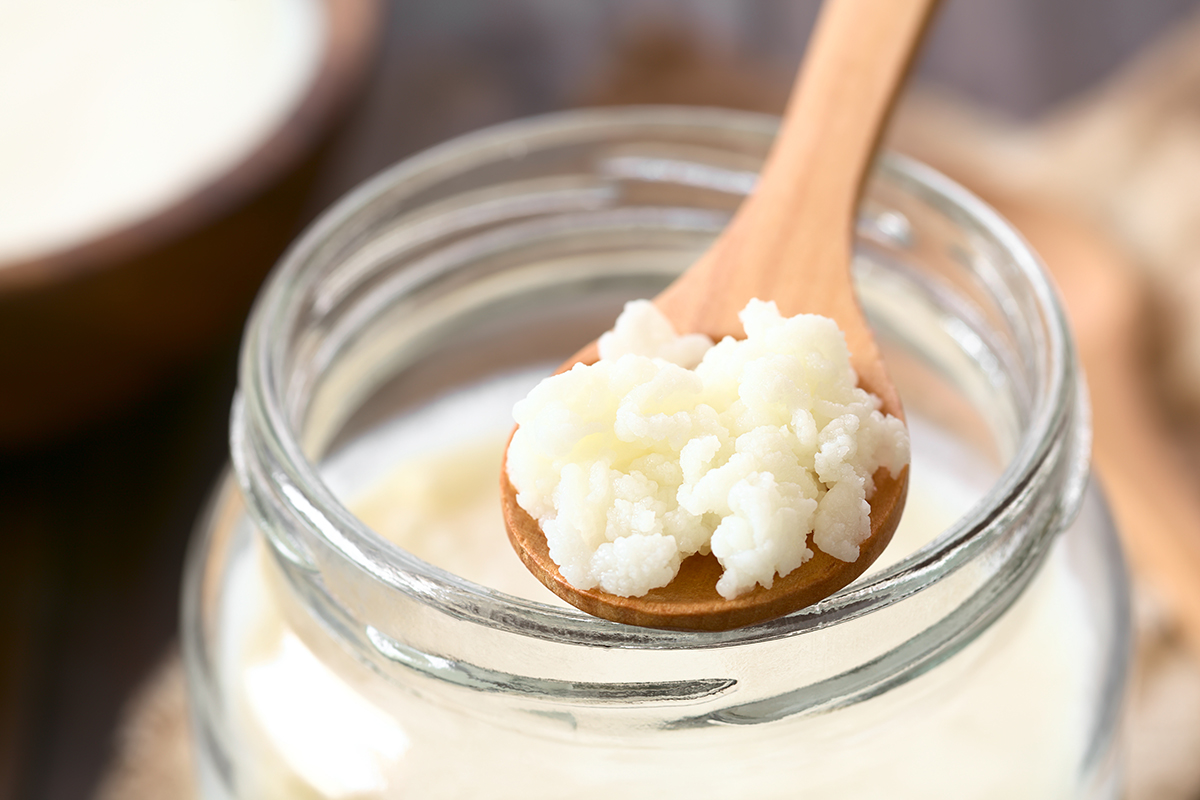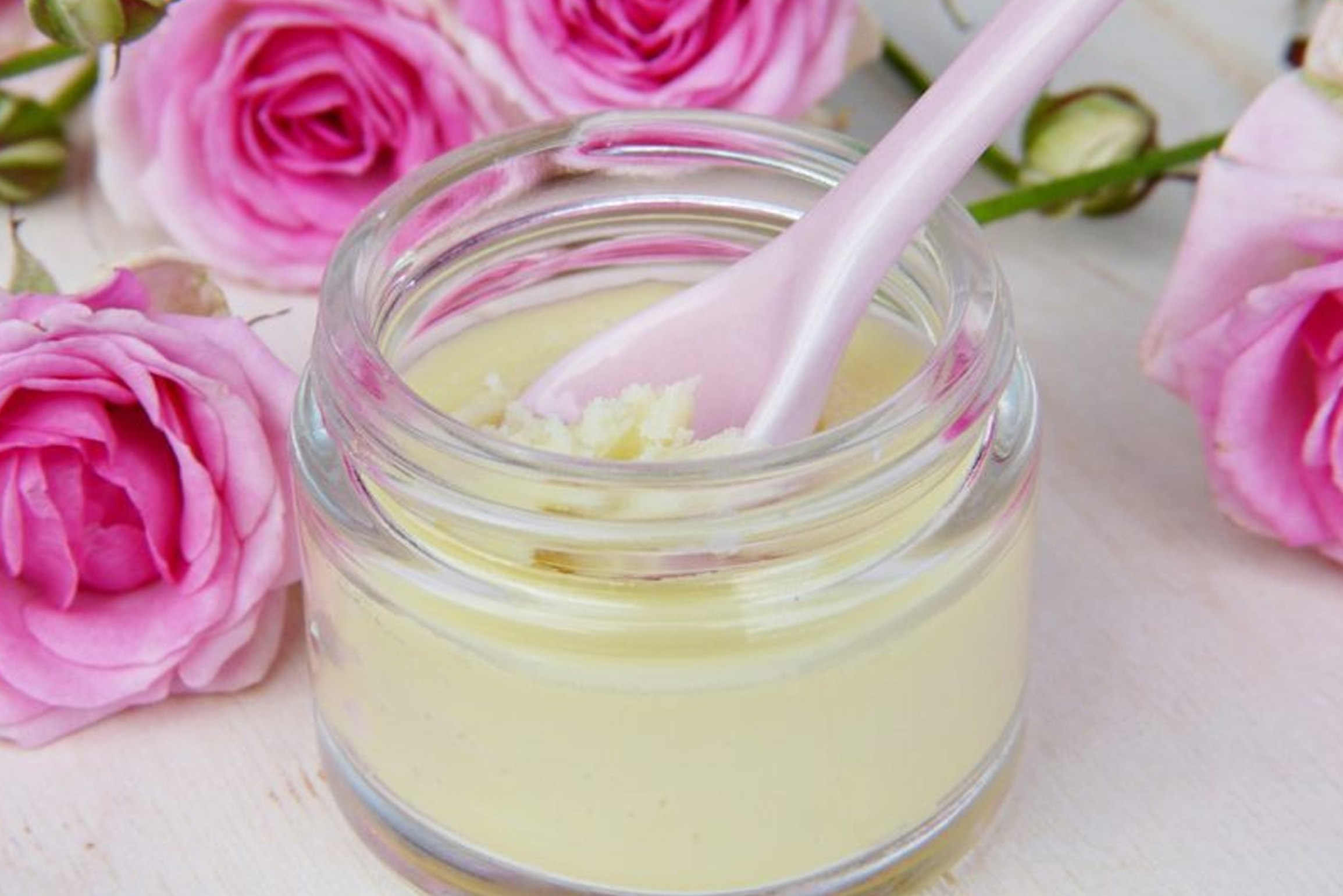Properties and benefits of kefir and kefir 14
In this blog post we tell you what kefir is and what its benefits and properties are. We will also clarify doubts about what kefir 14 is and why many vegetarians and people who want to improve their diet are including this product in their food routine. Don’t miss out on discovering the virtues of this probiotic food!
What is kefir?
Kefir is a fermented product obtained by a double fermentation: acid-lactic, by bacterial action; and alcoholic, by yeast.
It is liquid and yellowish-white in colour. The texture is gelatinous and somewhat elastic. Its aroma will depend on the ingredient used for its preparation, which can be: water, whole milk (from cows, sheep or goats) or tea.
As a probiotic food, it contains microorganisms (minimum 107 colony forming units per gram (cfu/g) of total product and minimum 104 cfu/g of yeast). Mainly, we find bacteria like the one known as Lactobacillus acidophilus and yeasts that contain lipids, proteins, minerals, vitamins and sugars.
Properties and benefits of kefir
Kefir contains calcium, magnesium, enzymes, vitamin K2, biotin and folate. In addition, in reference to its probiotic qualities, a 2015 study published in Frontiers in Microbiologyrecognised kefir as a potential source of probiotics and molecules with various health properties. According to the authors, “its biological properties suggest its use as an antioxidant, anti-tumour agent, antimicrobial and immunomodulator agent, among other functions”.
Powers the immune system
Its great content of probiotics, including Lactobacillus Kefiri, the probiotic strain which is unique to this food product, it helps the body defend itself and inhibits the growth of harmful bacteria. In addition, it also has an insoluble polysaccharide called kefiran – the subject of recent scientific studies that point to it as an antimicrobial supplement, which in turn helps to regulate cholesterol and blood pressure.
Helps to improve bone health
Many people have health problems like osteoporosis because their bodies are not able to get enough calcium. Kefir helps to prevent bone degeneration thanks to its high levels of calcium, complementing this action with its bioactive compounds and its contribution of vitamin K2, which enhance better calcium absorption, improving bone strength and density. Let us not forget that this resistance is increased by incorporating into its composition: phosphorus, magnesium and vitamin D.
Helps fight cancer
According to an in vitro test conducted by the School of Dietetics and Human Nutrition at McGill University’s Macdonald Campus in Canada, kefir reduced breast cancer cells by 56%, unlike yoghurt strains, which reduced the number of cells by 14%. In addition, other researchers point out that this food can be a seriously effective weapon against the spread of these dangerous multiplier cells, due to its anti-cancer function within the body.
Improves digestion
Consuming probiotic foods helps to restore the digestive balance, restoring the intestinal flora lost after having taken antibiotics and fighting various gastrointestinal diseases.
Looks after our skin
By balancing the digestive system, kefir helps to improve skin problems such as psoriasis, eczema or acne. In addition, it contributes to more efficient healing of rashes, wounds and burns.
What does the word “kefir” mean?
Kefir is a food from the Caucasus area. Etymologically, the word kefir comes from the Turkish word “kief”, which means “to feel good”, or “pleasant sensation”. There’s no way you won’t like it!
What is kefir 14?
You may have seen products labelled as kefir or kefir 14, the difference between them is that in kefir 14, up to 14 different live cultures are brought together that provide significant health benefits.
Thanks to all these cultures, the final product has more than 100 billion living bacteria, which is a 100 times higher quantity compared to yoghurt.
Among them we can find the following live cultures, for example:
- Bifidubacterium infantis
- Bifidobacterium lactis
- L. acidophilus
- L. delbrueckii subsp. lactis
- L. fermentum
- L. paracasei
- L. rhamnosus
- L. lactis subsp. cremoris
- L. lactis subsp. lactis
- L. lactis sub. lactis biovar diacetylactis
- L. mesenteroides
- L. pseudomesenteroides
- S. thermophilus
- L. delbrueckii subsp. bulgaricus.
We hope this text has been of interest to you. If you want to know more about probiotic food, don’t miss our posts:
Probiotics for good health and good mood (I) and Probiotics for good health and good mood (II) More interesting information on organic food and products will be available soon!






